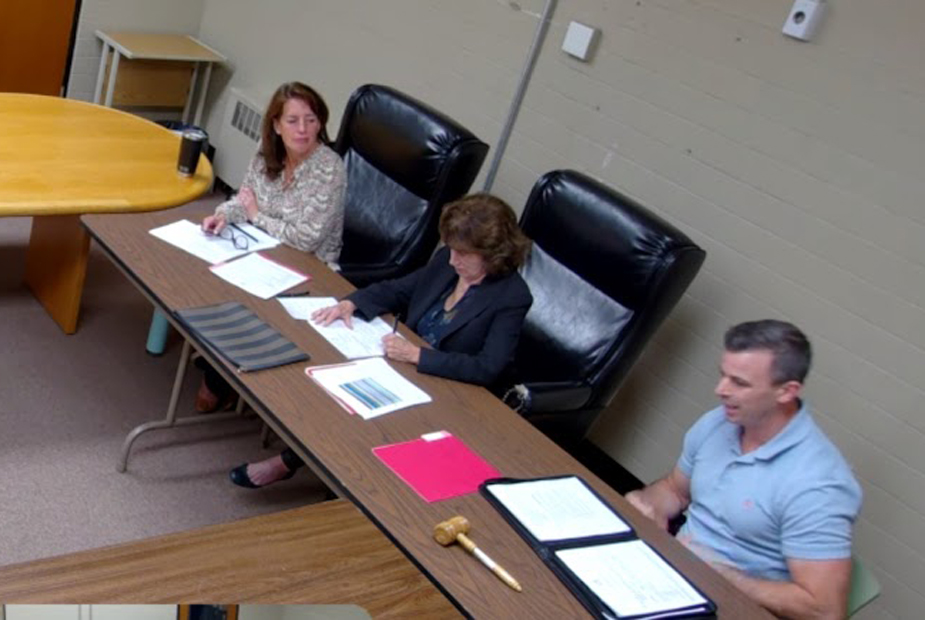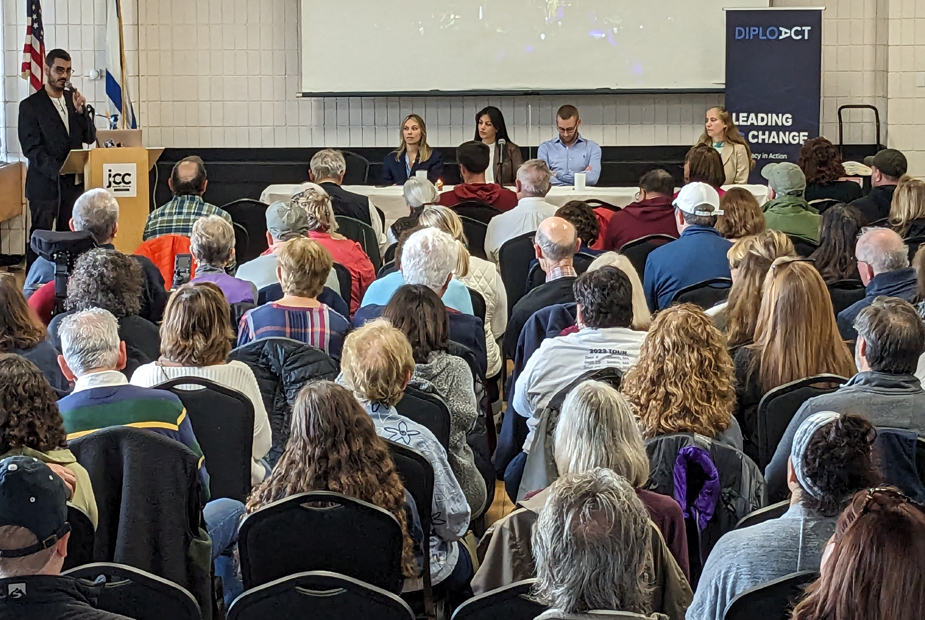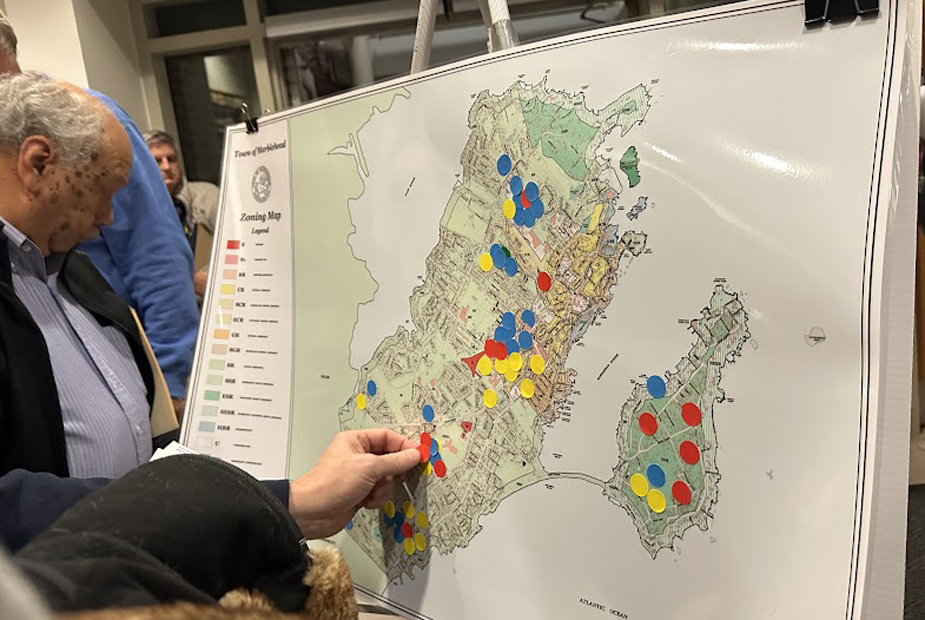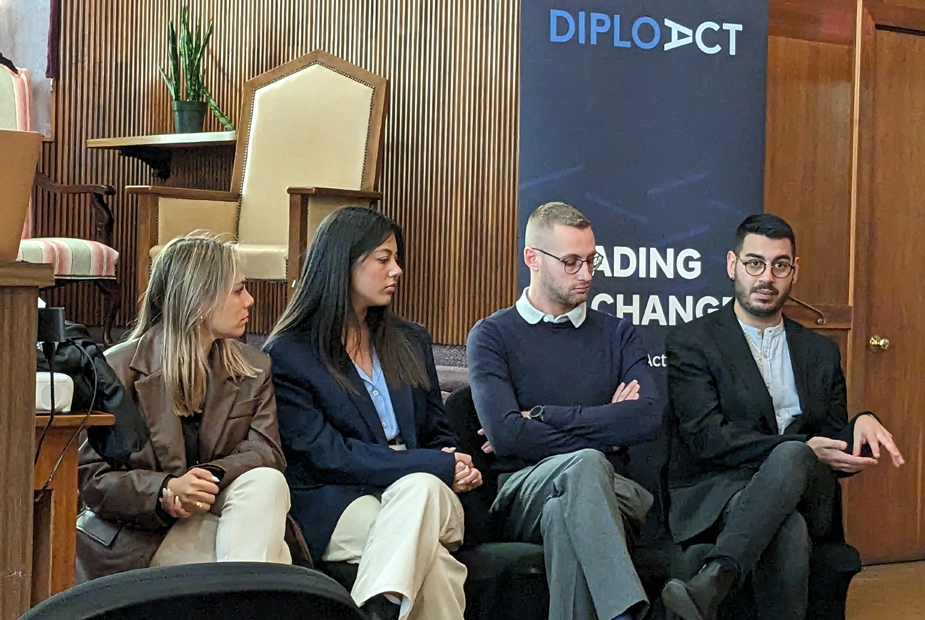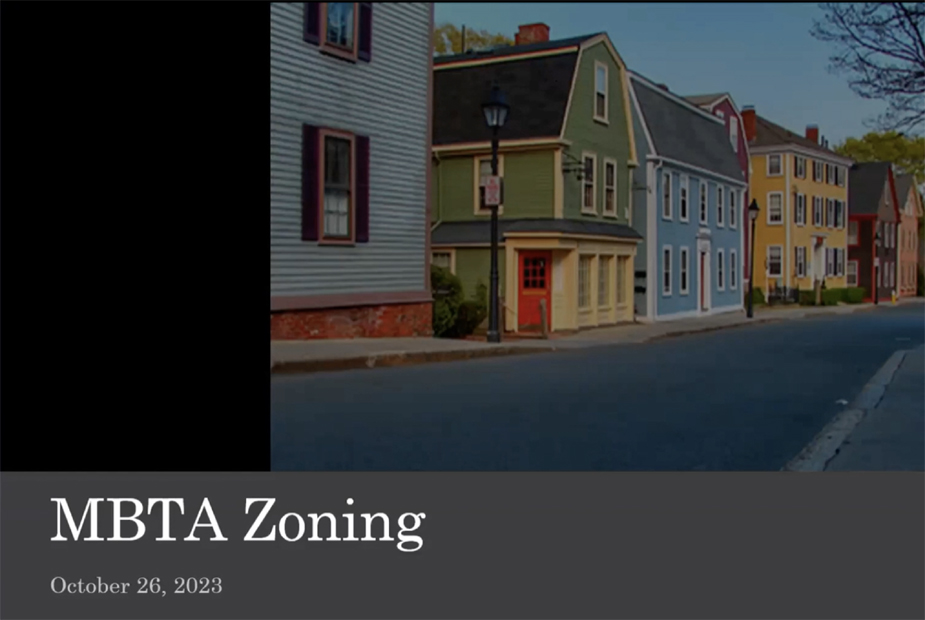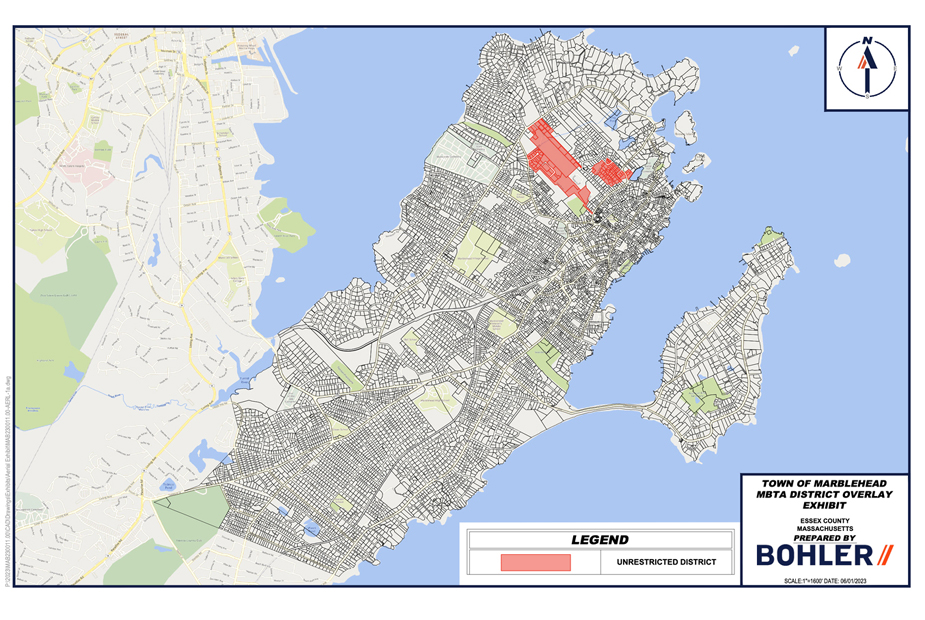McMahon’s Push for Changes at BOH Not Well Received by Hazlett
In the lengthy October 10, 2023 Board of Health (BOH) meeting, only two votes took place, both of which were unanimous: one regarding increasing the number of BOH members, and the other to ask the May 2024 Town Meeting to approve a transfer station feasibility study override at a cost of about $50,000. During much of the remaining time, member Tom McMahon brought forth several agenda items that resulted in pushback and at times sparring with fellow member, Helaine Hazlett.
Increasing the number of BOH members
The three-member BOH unanimously voted to draft a warrant article for May 2024’s Town Meeting that will change the make-up of the BOH from three members to five. “If one has a conflict or is ill or someone in their family is ill, it’s difficult to run a meeting with just two people,” explained Hazlett, who also noted that committees—such as the Mental Health Task Force on which fellow member Joanne Miller sits—need board representation, which with only three members, spreads the group thin.
“My biggest positive out of it is the increase in community engagement, which I think is lacking,” said McMahon. “Some of the decisions here have major effects on people’s lives in town…so if you increase the members, you can increase that engagement.”
McMahon added that prior to the possible addition of new members, he hopes to see “effort from all us three at the table to go out there and actually engage a lot more than is being done right now.” McMahon has been vocal about his positions and outreach on his public Facebook page ahead of and following BOH meetings, while Hazlett has in the past made remarks indicating she does not support such communication methods, saying in August, “I want everyone to realize I conduct the Board of Health’s business at this very table, and not through the press or through social media,” and, “I request that others do the same.”
A second BOH meeting every month
In light of the large volume of work in front of the BOH and what he said was the imperative for transparency with town residents, McMahon raised the idea of holding twice monthly meetings rather than just the one currently on the rotation.
Miller did not support McMahon’s proposal, suggesting that she would be amenable to adding additional meetings on a case-by-case basis if needs arise.
While she also opposed adding another regular meeting, Hazlett acknowledged that “when we’re coming into the discussion of the transfer station, we are going to see some extra meetings.”
Invoice transparency
Among McMahon’s other agenda items was the topic of bills signed off by the BOH. He contended that the way invoices currently are handled does not allow community members to see who the town pays and for which services. “I think [the bills] need to be discussed at a meeting and signed at a meeting.”
Hazlett was quick to respond: “We sign those every week,” she said, also asserting that she reviews each line of every bill carefully on the DocuSign application. The two argued about transparency, with Hazlett saying, “we’re being transparent when we write the budget and approve the budget…. I trust my director; when he runs out of money, then he has a problem. It’s not our problem; he has a problem, and we haven’t seen that yet.”
McMahon, suggesting that he was the only one of the three BOH members who did not routinely “rubber stamp” Petty’s bills, held up a piece of paper and asked, “[w]hat does Violi es Technicale do?” When neither Hazlett nor Miller replied, McMahon continued, “I think they’re being rubber stamped. I just read off the very first company on my list, and you didn’t know what it was, despite you saying you look at them very carefully.” Hazlett responded that she looks at descriptions on invoices, which McMahon noted did not offer proper detail. “‘Other disposal,’” he said, reading a description from an invoice, “what does that mean?” Hazlett answered, “[Petty’s] disposing of things and he’s paying for it.”
Miller weighed in to say, “every organization has to pay its bills, Tom,” at which point McMahon pointed to School Committee member Jenn Schaeffner in the audience and noted that, unlike the BOH, the School Committee talks about them first. Miller asked Schaeffner to provide input from the gallery. “The School Committee votes the schedule of bills every two weeks, or every time we have a meeting,” said Schaeffner. She went on to describe the process, which involves a public vote on the bills.
Audience member Allen Waller also spoke on this topic and noted that he has seen Health Department invoices only when he has sought them out through public information requests.
Ongoing transfer station issues
During his update on the transfer station, Petty noted that there have been some delays due to lack of responsiveness from the project’s architect. The current project is expected to include the installation of a new compactor, a sorting floor, and the addition of a new trailer for transfer station employees. But, Petty noted, he needs help from the architect to move forward, and he explained that, “to them it’s a smaller project, so his subs…are not always engaged, they’re trying to find time, they’re working on bigger projects to get this in there; I think that’s giving him some issues, but I need to hear it from him exactly why…and where we are.” Petty said that he had a “tentative meeting” with the architect planned for Wednesday, October 11. Marblehead Beacon reached out to Petty to see if the meeting with the architect had taken place but had not heard back prior to publication.
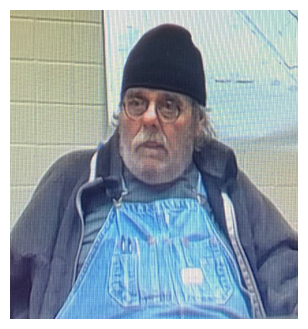
Past transfer station projects have involved delays, conflicts among involved parties, lawsuits, settlements, and unfinished work. Jerry Smith—who served as the project manager of past transfer station projects—is once again in charge of this new project. Noting the many previous problems, McMahon proposed to his fellow BOH members that it would make sense for someone with relevant knowledge to offer an extra set of eyes. To this end he recommended Marblehead resident Bob Erbetta, who McMahon stated “is experienced and has a lot of leadership qualities and would be willing to tag along with Jerry, pro bono.” McMahon added, “There is still a lot of public trust that needs to be solidified.”
Petty and Hazlett both dismissed this proposal, with Petty offering that anyone may attend public meetings and look at documents, and Hazlett suggesting insurance might be needed. McMahon pushed back, noting that his concern is the on-site component, to which Petty replied that he’d investigate the possibility and circle back.
Swap shed employees
McMahon also raised the matter of communication between the BOH and swap shed workers. Until he went to visit the all-volunteer operation, McMahon asserted, the workers had not had a visit from a BOH member since 2018. Because plans for upcoming changes and construction will impact them, he said, the volunteers expressed their desire to “have a say” and asked if they could have a “carve-out every two months” on the BOH’s agenda. Hazlett responded that, “once every two months–we can’t make that commitment, but we’d be happy to have them come anytime they need to talk to us.”
The back-and-forth continued, with Miller underscoring Hazlett’s offer that the workers come to BOH meetings anytime they feel the need, and McMahon pointing out that the swap shed workers are easy to find and that his fellow board members should consider paying them a visit.
For a rundown of other matters covered at Tuesday’s lengthy BOH meeting, stay tuned.
Editor’s note: School Committee member Jenn Schaeffner is a Marblehead Beacon founder and editor. She is recusing herself from Marblehead Beacon’s coverage of the School Committee and anything pertaining to Marblehead Public Schools.

